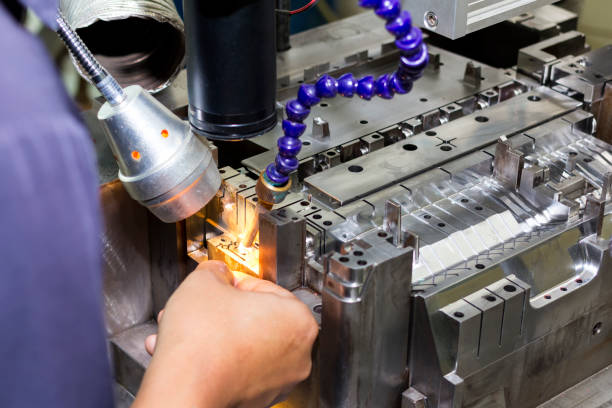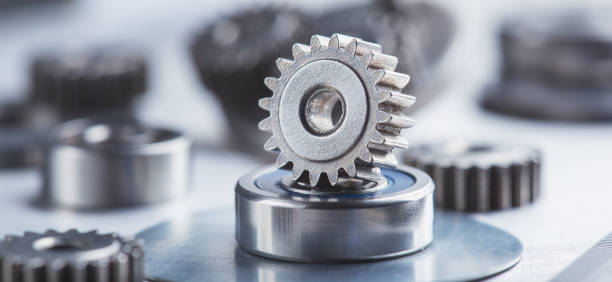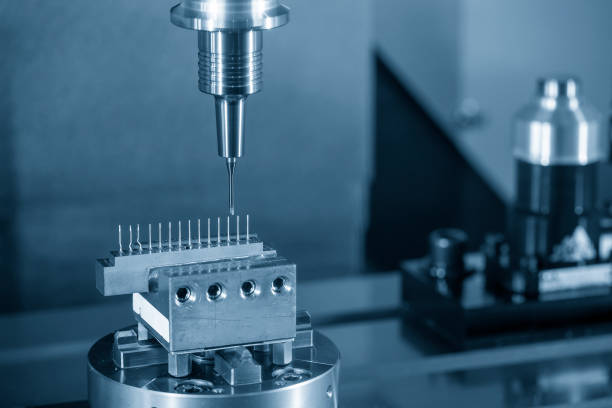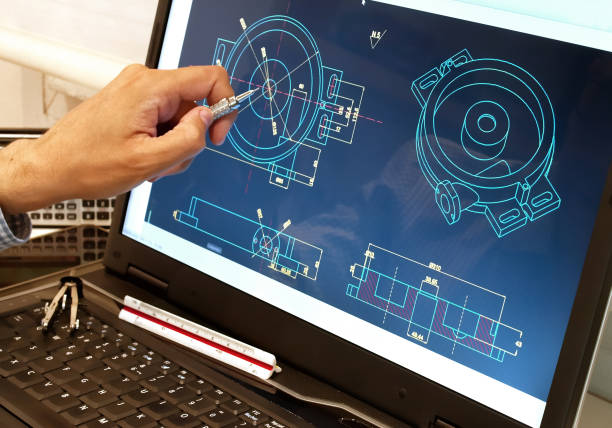- Nov 17, 2025
When it comes to high-stakes engineering projects, precision is not just important—it's critical. In industries like aerospace, automotive, medical devices, and electronics, the slightest error in component manufacturing can lead to costly failures, safety issues, or inefficiencies. That’s where custom CNC milling machines come in.
A custom CNC milling machine is designed to provide the accuracy and versatility needed for complex precision engineering projects. Unlike standard models, these machines can be tailored to meet the exact specifications of specific projects, offering unparalleled control over the manufacturing process. This article delves into why custom CNC milling machines are ideal for precision engineering, highlighting the key advantages and practical benefits they offer.
What Is a Custom CNC Milling Machine?
CNC (Computer Numerical Control) milling machines are automated tools that use rotating cutters to shape materials like metal, plastic, and wood into specific shapes and sizes. A custom CNC milling machine is a machine designed to meet the unique requirements of a specific task or project, offering enhanced flexibility, precision, and capability.
By utilizing sophisticated software and controls, custom CNC machines allow engineers to create highly detailed parts with extremely tight tolerances. These machines can be fine-tuned to achieve the desired results for a range of precision engineering applications, from prototyping to high-volume manufacturing.

Key Benefits of Custom CNC Milling Machines for Precision Engineering
1. Unmatched Precision and Accuracy
The most significant advantage of using an Oakon custom CNC milling machine is its ability to achieve extremely high levels of precision. In precision engineering, even the smallest deviations from the design can result in failures, inefficiencies, or higher costs. Custom CNC machines can be calibrated to meet very specific tolerances, making them ideal for industries that demand the highest levels of accuracy.
Tight Tolerances: Custom CNC milling machines can achieve tolerances as tight as ±0.005 mm, which is essential for industries like aerospace and medical device manufacturing.
Complex Geometry: These machines excel at producing intricate and complex geometries, which would be difficult to achieve with traditional machining methods.
The ability to consistently create parts with precision ensures that components fit perfectly, function as designed, and meet stringent safety or performance standards.
2. Flexibility in Material Choices
Another significant benefit of custom CNC milling machines is their ability to work with a wide range of materials. From metals like aluminum, titanium, and stainless steel to plastics and composites, these machines can handle various materials required for precision engineering projects.
Material Versatility: Whether you need parts made from durable metals or lightweight plastics, a custom CNC milling machine can be adapted to suit your material requirements.
Cost-Efficiency: Using a CNC machine for material-specific manufacturing minimizes waste, reduces costs, and speeds up production.
For example, custom CNC milling machines can be equipped with different tools and accessories that allow them to work with soft, medium, or hard materials, offering versatility across multiple industries.
3. Enhanced Efficiency and Speed
While custom CNC machines are highly precise, they are also designed for efficiency. CNC machines are computer-controlled, meaning they can operate 24/7 without the need for manual intervention, reducing production time significantly.
Faster Production: Once programmed, custom CNC milling machines can produce high volumes of parts with minimal downtime. This is crucial for industries that require quick turnarounds for prototypes or parts.
Automation and Reduced Human Error: CNC milling automates most of the manufacturing process, reducing human error and improving consistency, which leads to higher quality parts.
With custom CNC milling, engineering projects that would typically take weeks to complete can be finished in a fraction of the time, ensuring that production timelines are met.

4. Cost-Effectiveness for Low-Volume Production
When it comes to low-volume production, custom CNC milling machines can provide a cost-effective alternative to traditional manufacturing methods, such as injection molding or casting. CNC machines do not require the expensive tooling and setup costs associated with molding processes, making them ideal for small to medium production runs.
No Tooling Costs: Unlike injection molding, which requires molds to be created for every new part, CNC milling can be adjusted and reprogrammed as needed.
Lower Setup Costs: The initial setup costs for custom CNC milling machines are typically lower than traditional methods, making them a more accessible option for startups and small businesses.
This flexibility makes custom CNC machining a practical and cost-effective option for producing high-quality prototypes or small-batch production runs.
5. Tailored Design for Specific Project Needs
Custom CNC machines can be tailored to meet the unique needs of a project. Whether you need specific tooling or a specialized cutting technique, custom CNC milling machines can be adapted to your exact requirements.
Adaptability: Customization allows the machine to work with special fixtures, tools, and cutting strategies to meet specific design requirements.
Efficient Prototyping: Custom machines can also be used for rapid prototyping, where a design can be quickly created, tested, and iterated upon to ensure it meets performance standards.
By adapting the machine to the project's needs, engineers can achieve higher precision and reduce the number of revisions needed during development.
6. Consistent Quality Control
Quality control is essential for precision engineering projects. A custom CNC milling machine provides consistent results, ensuring that every part produced meets the specified design criteria.
Minimized Human Error: The automated nature of CNC milling minimizes the likelihood of errors due to human intervention, ensuring uniformity and quality across all parts.
Inspection and Adjustments: CNC machines can be equipped with advanced monitoring and diagnostic tools that allow real-time quality control, reducing defects and ensuring parts meet the necessary standards.
Consistent quality control ensures that products are reliable and can perform under demanding conditions.

Conclusion:
When it comes to precision engineering, custom CNC milling machines offer significant advantages in terms of accuracy, speed, cost-effectiveness, and material versatility. These machines are ideal for manufacturing high-precision components that meet strict specifications, while also providing the flexibility to adapt to various materials and project needs.
By choosing an Oakon custom CNC milling machine for sale online, you gain access to the tools needed to enhance your manufacturing process, improve product quality, and reduce production costs. Whether you're developing prototypes or handling small-batch production runs, custom CNC milling machines offer the perfect solution for your precision engineering needs.
FAQ:
1. What is the difference between custom CNC milling and standard CNC milling?
Custom CNC milling is tailored to meet specific project requirements, offering greater flexibility and precision than standard CNC machines, which may be limited in their capabilities.
2. How does custom CNC milling help in reducing production costs?
Custom CNC milling eliminates the need for expensive molds and tooling, making it a more cost-effective solution for low-volume production runs and prototyping.
3. Can custom CNC milling be used for both metals and plastics?
Yes, custom CNC milling machines can handle a variety of materials, including metals like aluminum and stainless steel, as well as plastics, composites, and other materials.


